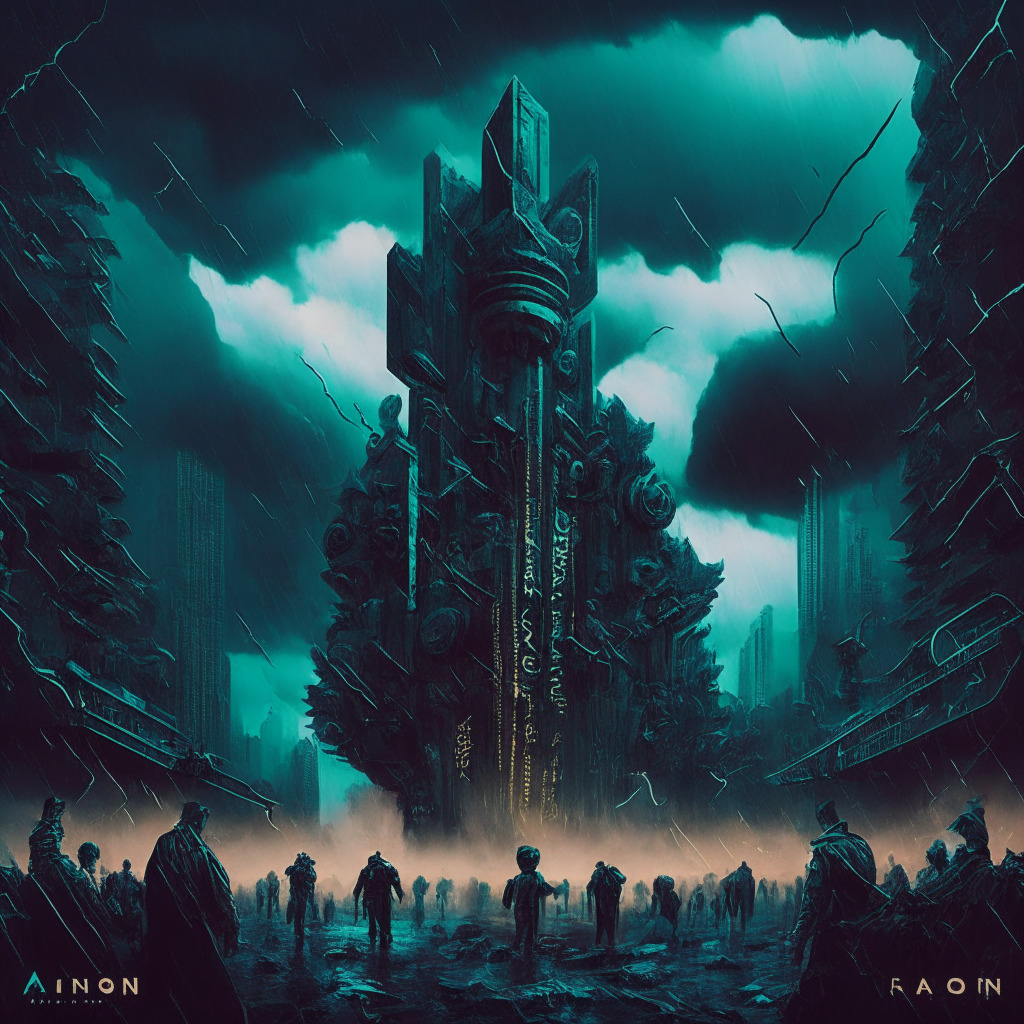Decentralized governance project Aragon took a surprising turn this week when it made the decision to banish multiple community members from its town square, amidst a discussion of the project’s finances. Aragon’s Head of Communications, Jessica Smith, claimed that the ban was due to a group of “coordinated” actors instigating chaos and asking provocative questions on the platform. This move highlighted the tension between the idealistic and censorship-resistant concept of Decentralized Autonomous Organizations (DAOs) and the reality of central control and influence that few stakeholders possess.
Aragon, a software that supports DAOs, allows token owners to participate in business decisions. The Aragon community voted nearly a year ago to have more direct influence over the 70-million-dollar project and its treasury allocations. However, the transfer of control has been a rocky road, with criticism and doubts arising among community members involved in the decision-making process.
One concerning aspect of the recent ban wave is that some of the exiled community members allege that they were merely expressing legitimate concerns and asking reasonable questions about Aragon’s timelines and processes. On the other hand, Smith argues that the banned members had a track record of engaging in “similar incidents” in other DAOs and were more interested in disruption than constructive discussion.
The situation raises questions about the true level of decentralization and autonomy within these organizations. Can a DAO stay true to its founding principles if certain individuals can control and manipulate the conversation, especially when those dissenting voices may be bringing up valid concerns? Many in the crypto community hold strong beliefs in freedom of speech, transparency, and expression, and as such, Aragon’s mass ban may not sit well with these values.
On the flip side, every organization needs some level of moderation to function effectively and maintain a healthy community. The challenge for Aragon and similar projects is finding the right balance between open discussion and disruptive behavior.
It remains to be seen how Aragon will navigate this delicate situation moving forward. Smith has mentioned that the bans are temporary but has not provided any details regarding reinstatement or how Aragon plans to resolve the conflict. Whether this incident will serve as an isolated occurrence or as a catalyst for broader debates regarding the nature of DAO governance and decentralization is yet to be known. It would be prudent for DAO communities to keep a close eye on these developments and ensure that open dialogue and transparency remain at the core of their operations.
Source: Coindesk




